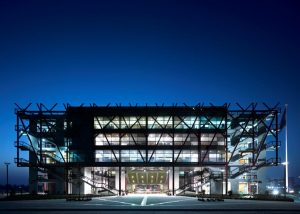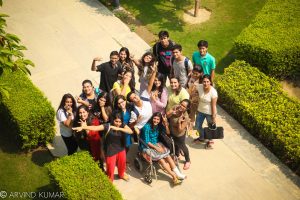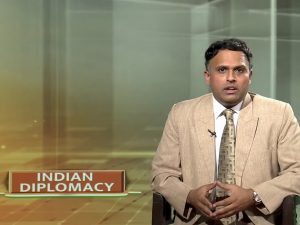The year 2020 marked the turn of the decade and was predicted to lead to new beginnings, perhaps dramatic paradigm shifts too. But no one would have raced to call it the watershed moment in history. We are not even halfway through the year and the world may have already turned over a new leaf. People are already talking about the “new normal” in these unprecedented times.
Powerful nations are undergoing political turmoil. Heading into the elections later this year, the US is dealing with the crucial discourse about race. The country’s international relationships, especially the frosty trade war with China, is escalating each day. India has also had its fair share of unrest, and its own border dispute with China has been a cause of much anxiety.
The Covid-19 pandemic has only been the tipping point. While it has brought attention to public health and policies, there has been a huge price to pay. As the world readjusts to its new realities—dynamics that were once almost unimaginable—it is time to reimagine political studies from a global perspective through the prism of identities, practice, history, economics, and thinking through how to effect political change.
Jindal School of International Affairs (JSIA) has launched its B.A. (Hons.) Political Science programme to address the gap between traditional political science and responding to new challenges by integrating theory and practice. “We see political science and politics as an art. The goal is to create not only future political science researchers but also future political leaders,” says Dr. Khinvraj Jangid, Associate Professor, JSIA.
In keeping with the ethos of O.P. Jindal Global University (JGU), the three-year undergraduate programme aims to shape the thought leaders and game changers of tomorrow. As it strongly advocates: “India’s voice on national and global political issues must be strengthened via concrete policy contributions to outstanding problems.”
India’s first global policy school has picked up the gauntlet to equip its graduates with skills and exposure to take on this position of responsibility in the future. It’s doing that with the B.A. (Hons.) Political Science programme that reimagines political studies. Here are the five hallmark characteristics that make the programme a cut above the rest.
- Curriculum that offers a broad spectrum of perspectives
“Traditional political science studies didn’t include subjects like foreign policy, diplomacy, peace, and conflict. They will be a part of the programme at JSIA. Traditional courses have missed out on the potential of academic writing and reading. Our B.A. (Hons.) Political Science programme will emphasise on it from the first semester,” shares Assoc. Prof. Jangid.
The programme has clearly realised the limitations of political studies in India so far, and has sought to elevate the learning experience from multiple perspectives, bringing together local and global, theory and practice. Political communication and social media, race, gender, caste, religion, and other forms of oppression and polarisation in India and around the world, and political practice, social movements, and leadership will be intrinsic to the programme curriculum.
Students will be able to imbibe deep knowledge of politics from different countries, going beyond Indian or global north theories to gain insights into the classic domains of political science from critical perspectives, and to analyse and keep up with pressing contemporary challenges and learn new frameworks to understand them.
- Dynamic choice of electives and interdisciplinary studies
“Political Science students need to understand Sociology to interpret political behaviour when people go to vote. They need to understand Psychology to figure out how leaders are shaped. They need to have insights into Economics because it explains the relationship between the market and democracy,” says Assoc. Prof. Jangid.
Interdisciplinarity has been the cornerstone of learning experiences at O.P. Jindal Global University. With its renowned Law, Journalism and Communication, Business, Liberal Arts, Public Policy, and Banking and Finance schools, among others, the University offers students of Political Science a wide range of interdisciplinary subjects to choose from. This will enable them to develop a holistic perspective on subjects related to politics, going beyond the traditional boundaries of the discipline of Political Science.
The programme offers upper level elective courses from the fourth semester. Largely seminar courses, they will give students the opportunity to specialise in research topics or regions. These include the changing landscape of war, new politics of gender and sexuality, organised crime, urban politics, and new geopolitical alliances and trends. Students can choose electives based on their interests and with close mentoring from faculty to chart their pathway.
- International collaborations for global exposure
We live in a world where Political Science studies cannot be limited to India. It’s crucial to have insights into global political thought. This is reflected in the curriculum and faculty backgrounds. In addition, JSIA has a number of student exchange and study abroad partnerships with leading academic institutions worldwide. Students of the BA Hons. Political Science programme stand to gain immensely from these collaborations through the worldview they offer.
Some of these collaborations involve Indiana University’s School of Public and Environmental Affairs (SPEA), USA; University of Wroclaw, Poland; Centre for European Studies, Katholieke Universiteit (KU), Leuven, Belgium; National Tsing Hua University, Taiwan; Kyung Hee University, South Korea; and Ritsumeikan Asia Pacific University, Japan.
Students of the programme can head to summer schools at University of Oxford, UK; University of Granada, Spain; and the Fletcher School at University of Tufts, USA. JSIA’s collaboration with Geneva School of Diplomacy gives students a platform to pursue a second Bachelor’s Degree in Global and International Studies. The opportunity to gain diverse global perspectives remains a constant!
- Close mentorship from highly qualified international faculty in collaboration with global research centers and a board of international advisors
“The rise of populism is not limited to Donald Trump in the US. It is a worldwide phenomenon. We are trying to teach politics not only in India, but how it works all over the world,” says Dr. Sebastian Antonino Cutrona, Assistant Professor, JSIA. As a part of the B.A. (Hons.) Political Science programme, he will be teaching about international relations, Latin American politics, and transnational organised crime.
The global perspective on Political Science that students can get at foreign universities is also possible on campus, thanks to faculty members with international experience. Dr. Cutrona is one among several international academics at JSIA. The programme faculty have all lived and worked around the world and completed PhDs from renowned global universities. As one of the top universities in India, JGU has an outstanding faculty-student ratio of 1:9, students benefit from close mentorship and guidance.
Their vast experience is bolstered by inputs and guidance from an international Board of Advisors that includes eminent policymakers and academics, as well as the global research networks built through the highly specialised research centers at JSIA and at JGU as a whole. These offer students early and hands-on research experience.
- Experiential learning encourages future decision-makers
“The youth can be equipped to change the world through understanding of politics. It is possible when they realise how they can contribute to political institutions, and challenge those policies that can be detrimental to the growth of the society,” says Dr. Sriparna Pathak, Assistant Professor and Assistant Dean, JSIA.
The B.A. (Hons.) Political Science programme gives students practical exposure through workshops, case studies and simulations, site visits and guest faculty, as well as the chance to learn from experts and practitioners from diverse fields and institutions including academia, media, and international organisations. This innovative pedagogy and collaboration go a long way in giving students insights into real-world issues, questions, and solutions.
Graduates of the programme can make their careers in political research and analysis in both the public and private sector, including civil service and bureaucracy, political leadership, political parties, media and communication, consultancies and research, nongovernmental organisations (NGOs), think tanks, and academia, among other domains. Practical exposure, experiential learning, close mentoring, and sustained interaction with experts enable students to identify their areas of interest and become responsible, knowledgeable and innovative future decision makers in their chosen fields.



